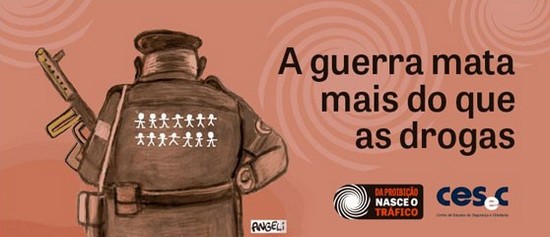A dynamic new campaign against drug prohibition has launched in Brazil, aiming to stimulate debate in a country that has been largely reluctant to broach the issue of liberalising its drug laws.
The “Da Proibição Nasce o Trafico” (“Drug Trafficking is Born from Prohibition”) campaign — developed by the Centre for Studies on Public Security and Citizenship at the University Candido Mendes (CESeC/UCAM) — was launched on April 20 with artwork by five of the country’s most prominent cartoonists publicised on buses in the country, along with a dedicated website providing more information.
Each of the five cartoons (see below) features a key argument against Brazil’s current prohibitionist stance.
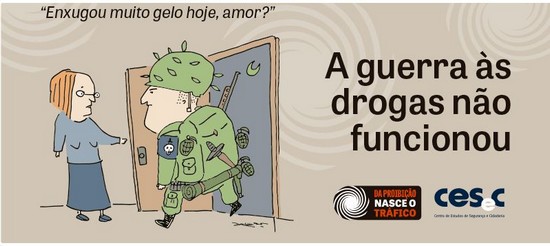
“The war on drugs didn’t work.”
The woman is asking if her partner has had success “drying a lot of ice,” a phrase used in Brazil to emphasise the futility of an action.
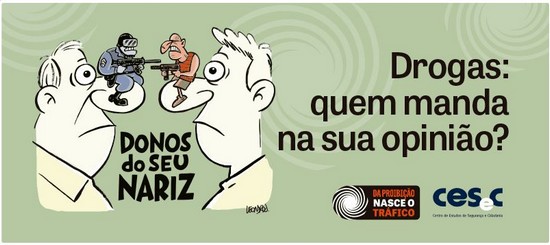
“Drugs: Who’s the boss in your opinion?”
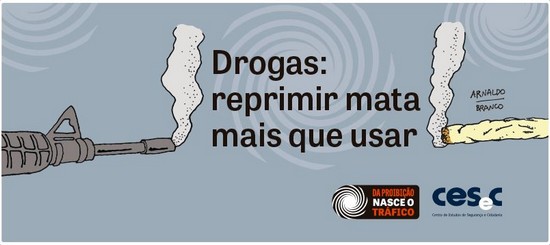
“Drugs: Repressing them kills more than using them.”
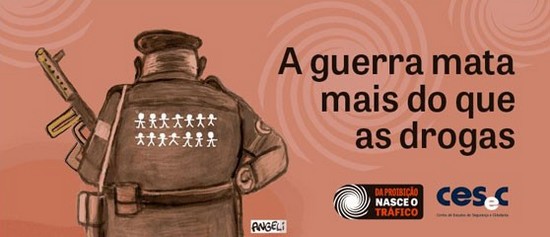
“The war [on drugs] kills more than drugs do.”
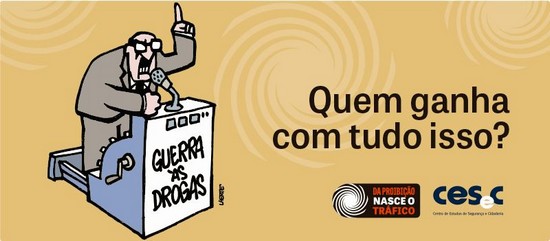
“Who wins from all of this?”
While Latin American countries — in particular Mexico, Uruguay, Colombia and Guatemala — have been key in sparking a global discussion on drug policy and the merits of the existing prohibitionist framework, Brazil has remained largely absent from the debate with politicians keeping the issue at arms length domestically.
The country did pass legislation in 2006 that in theory decriminalised the possession of drugs, but the poorly drafted and ambiguous law has in fact had the opposite effect; the number of prison inmates jailed for drug offenses shot up markedly in the following 3-4 years.
The same week the Da Proibição Nasce o Trafico campaign launched, Open Society Foundations convened a seminar in Rio de Janeiro attended by several prominent figures — including the ex-president of Brazil, Fernando Cardoso, and former-President of Switzerland Ruth Dreifuss — calling for Brazil to re-think its drugs strategies.
Speaking about Brazil’s current position, Cardoso declared, “We are fighting ghosts when the real enemy is the lack of information,” before adding that the country’s politicians have shied away from the debate based on the misconception that Brazilian society is more conservative than it really is.
Cardoso did signal that there could be hope, though, with current President Dilma Rousseff intimating she could be open to shifting the government’s position on the issue.
As a regional powerhouse, the inclusion of Brazil in the growing chorus of global voices calling for alternative drug policies would be momentous. Pressure from below will be vital in achieving this, something the CESeC campaign will hopefully spark.

